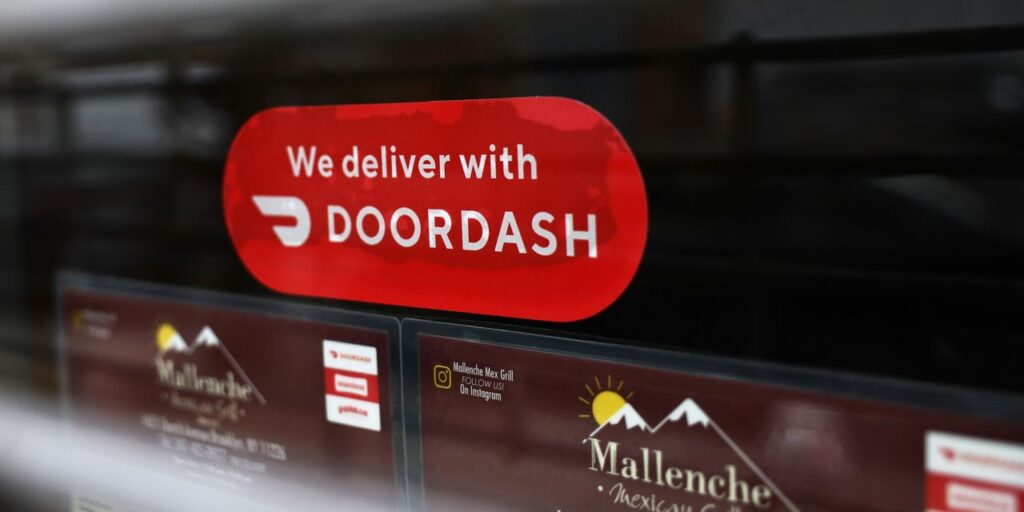Online delivery company DoorDash Inc. on Wednesday reported third-quarter results that beat expectations, as its expansion beyond restaurants helped grow orders, but it said it expected “significant levels of ongoing investment” up ahead as it tries to widen its service options.
DoorDash
DASH,
shares jumped 8% in after-hours trading.
The company reported a third-quarter net loss of $75 million, or 19 cents a share, compared with $296 million, or 77 cents a share, in the same quarter last year. Sales jumped 27% to $2.16 billion.
Analysts polled by FactSet expected DoorDash to lose 40 cents a share, on revenue of $2.09 billion.
Total orders climbed 24% to 543 million, as the company tries to meet customers in more places. Gross order value — or the total dollar value of orders completed on DoorDash — rose 24% to $16.8 billion. Both were above Wall Street’s expectations.
“Our continued investment in categories like grocery and retail, in addition to the consistent growth in restaurants, has driven strong consumer engagement and demand — creating more earnings for Dashers and more sales for merchants of all kinds,” Chief Financial Officer Ravi Inukonda said in a statement.
The company said it expected gross order value of $17 billion to $17.4 billion in the fourth quarter. Analysts polled by FactSet expected $16.66 billion. But that outlook, DoorDash said, “anticipates significant levels of ongoing investment in new categories and international markets.”
DoorDash reported earnings as it tries to expand its delivery options from restaurants into grocery stores and other retailers. But it faces stiff competition — as online ordering and delivery becomes more widely available from other businesses — and changes in regulation and spending patterns among inflation-battered consumers.
Some analysts have said that DoorDash’s size and “resilient” consumer spending would help it navigate any potential soft spots in demand. Still, others have worried about the return of student-loan payments, after a pandemic-era pause, and the impact on demand for food delivery.
MoffettNathanson analysts in September characterized food delivery as a luxury — and “one of the most discretionary behaviors of an average consumer” — that consumers could quickly sacrifice if student loans start to chew up savings.
“Does the resumption of loan repayments introduce bookings risk to food delivery?” the analysts asked. “We are afraid the answer is yes.”
Shares of DoorDash are up 54.4% so far this year.
